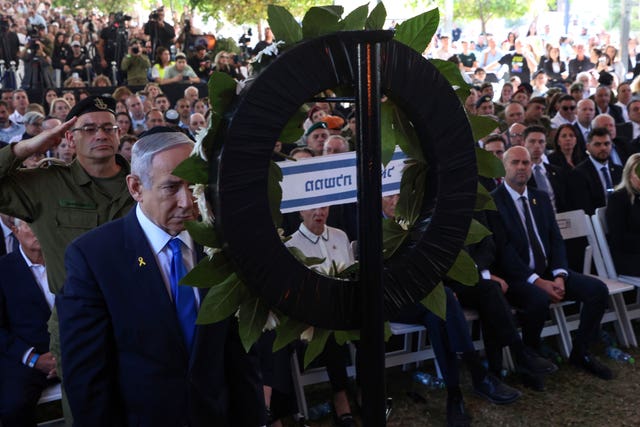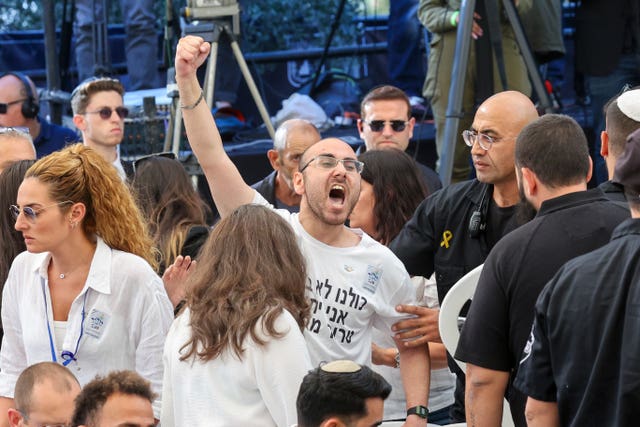President Abdel Fattah al-Sisi, speaking in Cairo, said the proposal also included the release of some Palestinian prisoners and the delivery of humanitarian aid to the besieged Gaza Strip.
Egypt was a key mediator along with Qatar and the United States.
This is the first time that Egypt’s president has publicly proposed such a plan. There was no immediate response from Israel or Hamas.

Mr el-Sisi said the proposal aimed to “move the situation forward”. He said once the two-day truce goes into effect, talks will continue to make it permanent.
There has been no ceasefire since the week-long pause in fighting and the exchange of hostages and prisoners in November.
Meanwhile, Israel’s Mossad chief traveled to Doha on Sunday for talks with Qatar’s prime minister and the head of the CIA.
The announcement came after Palestinian officials said Sunday that Israeli strikes in northern Gaza killed at least 33 people, mostly women and children. Israel said it attacked militants.
In another incident, a truck plowed into a bus stop near Tel Aviv, killing one person and injuring more than 30.
Israeli police said the attacker was an Arab citizen of Israel. The attack took place in front of a military base and near the headquarters of the Israeli spy agency Mossad.
During a government memorial on Sunday for the Jewish anniversary of Hamas’ October 7 attack on southern Israel, Israeli Defense Minister Yoav Galant said “not every objective can be achieved through military operations.”
He added that “painful compromises will be required” to return the hostages.
Protesters interrupted Israeli Prime Minister Benjamin Netanyahu’s speech at the nationally televised ceremony.

People shouted “Shame on you” and forced Mr Netanyahu to stop his speech.
Many Israelis blame Mr. Netanyahu for the failures that led to the attack and hold him responsible for not yet bringing home the remaining hostages.
Egypt’s proposal came a day after Israeli strikes against Iran in response to Iran’s ballistic missile attack earlier this month.
Iran’s supreme leader said the attack “should not be exaggerated or downplayed,” while not calling for retaliation. It was Israel’s first open attack on its sworn enemy.
That exchange of fire has raised fears of an all-out regional war pitting Israel and the United States against Iran and its armed proxies, which include Hamas and the Hezbollah militant groups in Lebanon, where Israel launched a ground invasion earlier this month after nearly a year of conflict. at a lower level caused by the war in Gaza.
